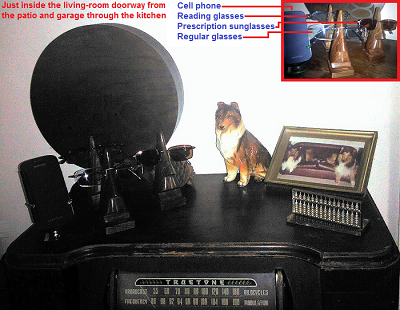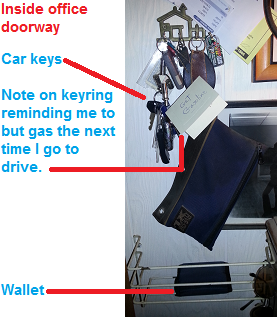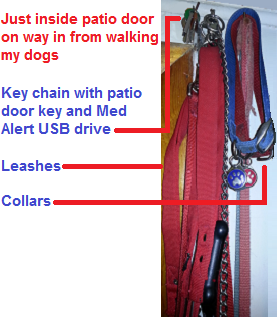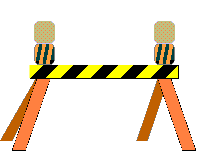Easier
stair climbing
Getting
tired midway up a long or multi-landing stairway? — Try inhaling
as you lift your foot and exhaling as you push down on the
step. Granted, you're very likely lifting and stepping rather
simultaneously, but the main upward push of your body should
be done on the exhale, with the remaining raising of the other
foot being done on the inhale. If you haven't slowed down
enough for one complete breath per stair, exhale on the upward
pushing of your body on two stairs, and then inhale on the
end of the foot-lift for the next step. This makes the raising
of your body up the stairs easier, as your pushing with your
breath as well as with your knees and legs. Inhaling is also
easier when you are not applying the main lifting pressure
with your legs. This is similar for any movement that requires
some effort; for example, you should exhale as you raise a
barbell or dumbbell and exhale as you lower them. Just remember
push with your breath when you push with your body; inhale
as you release the push.
Remembering
without a list
If
you find yourself frequently leaving the house sometimes without
your keys or sometimes without your wallet or sometimes without
something else you always need with you, don't blame your
memory, per se. And you don't need a list by the door saying,
"Wallet, keys, cell phone, medical bracelet." Just
count the number of things you need to take with you, and
remember the number.
When I get the dogs ready
for their walk and just before I go out the back door, I do
a "body/pocket count" of 4. During the day, I usually
have my watch on, so I don't need to remember that. And I
can see whether I need my glasses or sunglasses, so I don't
need to remember that. What I do have to remember
specifically are (1) my medical ID bracelet, (2) my wallet,
(3) my house keys, and (4) my mobile phone. If I made a mental
list of the items, I might think I had them all after mentally
checking off the item names, not realizing I'd missed an item.
Instead, I count: 1, 2, 3, 4 — got them all. If I only come
up with three, it is easy to determine which one is missing!
The same method can be
used when you're making a quick trip to the store for just
a few items. Chances are, when you return home missing an
item, it isn't because of a bad memory for the items; it's
just because you thought you'd picked up all the items foremost
on you mind. But, if you count the items you need before you
get to the store (1) orange juice, (2) cheese, (3) milk, and
(4) popcorn, then, when you have the usual orange juice, cheese,
and milk in your cart, you won't think you're done if you
remember the number 4! When you count and see one missing,
chances are you'll remember the item. It's only when you try
to remember a lit of item names, that you end up coming home
one item short.
Keep
looking up!
Keep
looking up — figuratively, yes, but literally, as well! Many
"people of a certain age" have had a fall or are
worried about falling and therefore pay too much attention
the the footstep they're about to take, head tilted down toward
the ground as they walk. This results — not only in stooped
shoulders, but also in a loss of equilibrium. If you spend
all your time looking down, your brain becomes adjusted to
that position; when you look up, your brain senses a change
of balance, and you're more likely to take a fall than if
you hadn't been watching quite so carefully the ground in
front of your feet!
The brain is an interesting
computer. An experiment was once done in which volunteer students
wore glasses that flipped everything upside-down. After a
period of time, their brains adjusted and started "seeing"
everything right-side-up again. When the subjects then took
off their glasses, the brain saw everything upside-down, and
it took some time before it reversed itself to normal viewing!
The same type of thing
will happen if you spend all your time leaning forward, looking
down. The brain eventually decides that is a proper balance
position; and, when you look up, it goes, whoa— this is wrong,
you're losing your balance, you're going to fall....and you
do! So, as we said at the beginning of this item, keep looking
up! (Use your peripheral vision to make sure there are no
bumps or slippery spots in the road ahead!)
A
place for everything and everything in its place
 I
saw Canadian comedian, satirist, writer, and producer Rick
Green (see photo left, on left) on PBS discussing ADD with
host actor and comedian Patrick McKenna (see photo left, on
right) in Green's documentary A.D.D. and Loving It?!
in which he mentioned his book (written with Dr. Umesh Jain)
ADD Stole My Car Keys. I think I laughed out loud at
the title. Whereas, some of us probably really can blame ADD
for "stealing" our car keys, most of us should probably
blame our "auto pilot" (see "Ageless
Mind" in this section).
I
saw Canadian comedian, satirist, writer, and producer Rick
Green (see photo left, on left) on PBS discussing ADD with
host actor and comedian Patrick McKenna (see photo left, on
right) in Green's documentary A.D.D. and Loving It?!
in which he mentioned his book (written with Dr. Umesh Jain)
ADD Stole My Car Keys. I think I laughed out loud at
the title. Whereas, some of us probably really can blame ADD
for "stealing" our car keys, most of us should probably
blame our "auto pilot" (see "Ageless
Mind" in this section).
As
I suggest in "Ageless
Mind," we put commonly done things on automatic and
concentrate on more important things. Where we put our glasses,
our car keys, our coffee cup is one of those things that only
seems important when we want to find them. To counter the
tendency to put the car keys or glasses or coffee cup down
absently while concentrating on "more important things,"
you need to create "a place for everything" and
then practice reminding yourself to put "everything in
its place." If there's a logical and pre-specified place
for your glasses or cell phone or keys, etc., as soon as you
enter a room, you will be less likely just to place them on
the first open surface that your "automatic pilot"
sees as handy.
I
have a cell-phone caddy just inside the living-room doorway,
another in my office by the computer, and a third in the TV
room. My auto pilot used to just set it on the first horizontal
surface it saw when it knew I needed my hands for something
else, and I would have to use the "find my phone"
app on my watch or computer to find it! Now, at least 99%
of the time, my conscious self notes I'm about to put the
phone down and reaches toward the cell-phone caddy — which
is generally more available than empty flat surfaces in my
house, anyhow!
Similar
and perhaps more so was the problem of losing my glasses.
I saw some cute wood Easter Island type heads made to hold
glasses and purchased several. There are three next to the
cell-phone  caddy
as I enter the living room from the garage/patio/utility-room/kitchen,
a spot where glasses tended to be removed and set...somewhere.
Now, a pair of magnifying reading glasses are set on the back
one for quick use in the living room, my prescription sun
glasses come off and go on the middle one, and my regular
glasses go on the front one. Rarely do they end up anymore
on the piano or the piano bench or the kitchen counter or
the.... It is actually easier to put them on their holders
than to find a random vacant horizontal surface! caddy
as I enter the living room from the garage/patio/utility-room/kitchen,
a spot where glasses tended to be removed and set...somewhere.
Now, a pair of magnifying reading glasses are set on the back
one for quick use in the living room, my prescription sun
glasses come off and go on the middle one, and my regular
glasses go on the front one. Rarely do they end up anymore
on the piano or the piano bench or the kitchen counter or
the.... It is actually easier to put them on their holders
than to find a random vacant horizontal surface!
I
have another in my office for another pair of magnifying reading
glasses. If I take off my regular glasses to work at the computer,
they now go on the glasses head, giving a new meaning to the
term "four eyes." There is another pair of magnifying
reading glasses on the table next to the couch in the TV room.
When I turn off the TV to "rest a bit" before going
to bed, my glasses turn that wood head into a "four
eyes." And I have two wood heads next to my bed, one
for yet another pair of magnifying reading glasses I use for
doing reading comics and doing puzzles and sometimes real
reading in bed and the other for my regular glasses if they've
managed to stay on my attached wooden head long enough
to be removed in the bedroom. Granted, I often still can't
remember where I put my regular glasses, but now I have specific
places to look for them, and they'll be standing right up
there look cute (or silly?) where I can see them and not shuffled
under the papers that clutter the horizontal space where they
otherwise would have ended up!
Just inside the
patio door, as I come in from walking (or go out to walk)
my dogs, are three hooks — one for their collars, one for
their leashes, and, most importantly, one for the patio-door
key (with my   Med
Alert USB drive on the key ring; see my Hubpages
review. Just inside my office door is a key-ring holder
where I (almost) always remember to put my car keys, above
a rack where I (almost) always remember to put my wallet.
If the keys are not where they belong, I just look in the
outside handle of the patio door and think, "That's why
I had trouble getting the door to shut last night!" I
usually remove my wallet as soon as I get into the living
room (three steps from its office home), so remembering to
put it in its rack doesn't take that much effort. And, when
I find it still in my pocket, I make the trip to its resting
place rather than just take it out and plop it somewhere. Med
Alert USB drive on the key ring; see my Hubpages
review. Just inside my office door is a key-ring holder
where I (almost) always remember to put my car keys, above
a rack where I (almost) always remember to put my wallet.
If the keys are not where they belong, I just look in the
outside handle of the patio door and think, "That's why
I had trouble getting the door to shut last night!" I
usually remove my wallet as soon as I get into the living
room (three steps from its office home), so remembering to
put it in its rack doesn't take that much effort. And, when
I find it still in my pocket, I make the trip to its resting
place rather than just take it out and plop it somewhere.
All it takes is
a little practice reminding yourself to put things where they
belong. Seeing the specialized holders and hooks to do this
helps remind you. When I was a boy, we had a four-door Chrysler
with tail fins that stretched into the back door. I shut the
door with my thumb wrapped around the fin. My father did it.
My mother did it. My sister refused, so one Sunday before
Sunday School, I did it for her and ran after the car as it
drove away from church. To this day, my thumb twitches if
I go to shut a car door with my thumb at all close to the
inside edge of the door. Eventually, remembering becomes "auto
pilot," too!
|
